|
Books Should Be Free Loyal Books Free Public Domain Audiobooks & eBook Downloads |
|
|
Books Should Be Free Loyal Books Free Public Domain Audiobooks & eBook Downloads |
|
Humorous Books |
|---|
|
Book type:
Sort by:
View by:
|
By: P. Hampson | |
|---|---|
 The Romance of Mathematics Being the Original Researches of a Lady Professor of GirthamCollege in Polemical Science
The Romance of Mathematics Being the Original Researches of a Lady Professor of GirthamCollege in Polemical Science
| |
By: W. S. Gilbert (d 1911) | |
|---|---|
 More Bab Ballads
More Bab Ballads
This is a subset of the first twelve poems from the second collection of Gilbert’s “Bab Ballads” – light verses poking fun at the life and people of his time in Gilbert’s unique “topsy-turvey” style. The epitaph on his memorial on the Victoria Embankment in London is “HIS FOE WAS FOLLY AND HIS WEAPON WIT”, an epitaph amply exemplified in these verses. | |
By: W. S. (William Schwenck) Gilbert (1836-1911) | |
|---|---|
 Bab Ballads and Savoy Songs
Bab Ballads and Savoy Songs
| |
By: Al. G. (Alfred Griffith) Field (1852-) | |
|---|---|
 Watch Yourself Go By
Watch Yourself Go By
| |
By: Stephen Lucius Gwynn (1864-1950) | |
|---|---|
 Irish Books and Irish People
Irish Books and Irish People
| |
By: Will Rogers (1879-1935) | |
|---|---|
 Rogers-isms, the Cowboy Philosopher on the Peace Conference
Rogers-isms, the Cowboy Philosopher on the Peace Conference
| |
By: Mark Lemon (1809-1870) | |
|---|---|
 How to Make a Man of Consequence
How to Make a Man of Consequence
Mark Lemon had a natural talent for journalism and the stage, and, at twenty-six, retired from less congenial business to devote himself to the writing of plays. More than sixty of his melodramas, operettas and comedies were produced in London, whilst at the same time he was contributing to a wide variety of magazines and newspapers, and was founding editor of both Punch and The Field. | |
By: Henry Wallace Phillips (1869-1930) | |
|---|---|
 Red Saunders' Pets and Other Critters
Red Saunders' Pets and Other Critters
| |
 Red Saunders His Adventures West & East
Red Saunders His Adventures West & East
| |
 Mr. Scraggs
Mr. Scraggs
| |
By: J. Thorne Smith, Jr. (1892-1934) | |
|---|---|
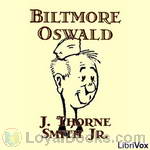 Biltmore Oswald
Biltmore Oswald
The hilarious diary of a young man's recruitment into, and service in a navy, which, though well equipped and disciplined, remains woefully ill prepared for his arrival and dubious contribution. (Introduction by Nigel Boydell) | |
By: Thomas Hood (1799-1845) | |
|---|---|
 Workhouse Clock
Workhouse Clock
There were scarcely any events in the life of Thomas Hood. One condition there was of too potent determining importance—life-long ill health; and one circumstance of moment—a commercial failure, and consequent expatriation. Beyond this, little presents itself for record in the outward facts of this upright and beneficial career, bright with genius and coruscating with wit, dark with the lengthening and deepening shadow of death. | |
By: George A. (George Alexander) Morton (1857-) | |
|---|---|
 Law and Laughter
Law and Laughter
| |
By: Mary Belle Freeley | |
|---|---|
 Fair to Look Upon
Fair to Look Upon
| |
By: F. Anstey (1856-1934) | |
|---|---|
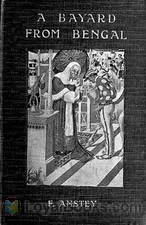 Bayard from Bengal
Bayard from Bengal
The estimable gentleman, Chunder Bindabun Bhosh, ESQ., B.A., travels from his native India to England, with his impeccable English and manners, which immediately mark him as a foreigner, and embarks on an enviable program of escapades. These stories are the product of the fertile imagination of Hurry Bungsho Jabberjee, B.A., a nom de plume for the humorist F. Anstey, which is a further nom de plume for Thomas Anstey Guthrie. Whether rescuing a nubile maiden from a charging bull or falling in love with said nubile maiden, Mr. Bosh, B. A. cannot help but perform with the requisite humor to engage our attention. | |
By: George W. Carleton (1832-1901) | |
|---|---|
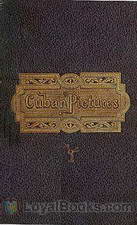 Our Artist in Cuba Fifty drawings on wood. Leaves from the Sketch-book of a traveler, During the Winter of 1864-5.
Our Artist in Cuba Fifty drawings on wood. Leaves from the Sketch-book of a traveler, During the Winter of 1864-5.
| |
By: Clarence Day (1874-1935) | |
|---|---|
 This Simian World
This Simian World
| |
By: Lucretia P. (Lucretia Peabody) Hale (1820-1900) | |
|---|---|
 The Peterkin Papers
The Peterkin Papers
| |
By: Henry Walcott Boynton (1869-1947) | |
|---|---|
 The Golfer's Rubaiyat
The Golfer's Rubaiyat
| |
By: Wallace Irwin (1876-1959) | |
|---|---|
 The Rubaiyat of Omar Khayyam Jr.
The Rubaiyat of Omar Khayyam Jr.
| |
 The Love Sonnets of a Hoodlum
The Love Sonnets of a Hoodlum
| |
By: Heywood Broun (1888-1939) | |
|---|---|
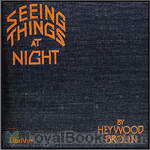 Seeing Things at Night
Seeing Things at Night
This Book is a collection of humorous short stories which describe the comedy in everyday things and situations. | |
 Pieces of Hate and other Enthusiasms
Pieces of Hate and other Enthusiasms
This book is a collection of humorous short stories about ordinary instances in daily life. We learn many interesting things about life, such as how to court women successfully, what it feels like to be a god, and why sometimes it would be a good idea to exchange one's own newborn baby for a better one at the hospital. | |
By: David Ross Locke (1833-1888) | |
|---|---|
 "Swingin Round the Cirkle." His Ideas Of Men, Politics, And Things, As Set Forth In His Letters To The Public Press, During The Year 1866.
"Swingin Round the Cirkle." His Ideas Of Men, Politics, And Things, As Set Forth In His Letters To The Public Press, During The Year 1866.
| |
By: Metta Victoria Fuller Victor (1831-1885) | |
|---|---|
 The Blunders of a Bashful Man
The Blunders of a Bashful Man
| |
 The Bad Boy At Home And His Experiences In Trying To Become An Editor - 1885
The Bad Boy At Home And His Experiences In Trying To Become An Editor - 1885
| |
By: James Bell Salmond (1891-1958) | |
|---|---|
 My Man Sandy
My Man Sandy
| |
By: Knight Russ Ockside (1830-1898) | |
|---|---|
 History and Records of the Elephant Club
History and Records of the Elephant Club
Mortimer Q. Thomson (September 2, 1832 – June 25, 1875) was an American journalist and humorist who wrote under the pseudonym Q. K. Philander Doesticks. He was born in Riga, New York and grew up in Ann Arbor, Michigan. He attended Michigan University in Ann Arbor, but was expelled along with several others either for his involvement in secret societies[1] or for "too much enterprise in securing subjects for the dissecting room."[2] After a brief period working in theater, he became a journalist and lecturer... | |
By: H. C. (Harry Charles) Witwer (1890-1929) | |
|---|---|
 Alex the Great
Alex the Great
| |
 Kid Scanlan
Kid Scanlan
| |
By: Jesse Lynch Williams (1871-1929) | |
|---|---|
 Why Marry?
Why Marry?
Why Marry? is a comedy, which "tells the truth about marriage". We find a family in the throes of proving the morality of marriage to a New Age Woman. Can the family defend marriage to this self-supporting girl? Will she be convinced that marriage is the ultimate sacredness of a relationship or will she hold to her perception that marriage is the basis of separating two lovers."Why Marry?" won the first Pulitzer Prize for Drama. | |
By: Richard D. Blackmore (1654?-1729) | |
|---|---|
 Essay upon Wit
Essay upon Wit
| |
By: Steele Rudd (1868-1935) | |
|---|---|
 On Our Selection
On Our Selection
The humorous account of Dad and Dave and the rest of the Rudd clan as they attempt to carve a farming 'selection' out of the Australian wilderness in spite of fire, famine, snakebite, and a loony hired hand. | |
By: Susan Edmonstoune Ferrier | |
|---|---|
 Marriage, Volume 1
Marriage, Volume 1
“Love!–A word by superstition thought a God; by use turned to an humour; by self-will made a flattering madness.” – Alexander and Campaspe. Lady Juliana, the indulged and coddled seventeen (”And a half, papa”) year old daughter of the Earl of Cortland, is betrothed by her father to a wealthy old Duke who can give her every luxury. She instead runs away and marries her very handsome but penniless lover. Very soon, they are forced to travel to Scotland to live with his quirky family in a rundown “castle” in the barren wilderness. Can this marriage survive?(Summary by P.Cunningham) | |
By: Will M. (Will Martin) Cressy (1863-1930) | |
|---|---|
 Continuous Vaudeville
Continuous Vaudeville
| |
By: John Wight (1866-1944) | |
|---|---|
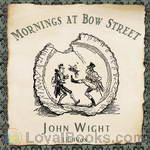 Mornings at Bow Street
Mornings at Bow Street
This is a collection of various articles found in Morning Herald columns. Some are found interesting, some may be hilarious! The 84 pieces of this book are actual reports throughout the 1870s newspaper written by the reporter, John Wight and Illustrated by George Cruikshank | |
By: Henry Carey (1687?-1743) | |
|---|---|
 A Learned Dissertation on Dumpling (1726) [and] Pudding and Dumpling Burnt to Pot. Or a Compleat Key to the Dissertation on Dumpling (1727)
A Learned Dissertation on Dumpling (1726) [and] Pudding and Dumpling Burnt to Pot. Or a Compleat Key to the Dissertation on Dumpling (1727)
| |
By: Christopher Morley (1890-1957) | |
|---|---|
 In the Sweet Dry and Dry
In the Sweet Dry and Dry
Written just before Prohibition to entail the possible troubles that might happen en route. Both sides of the argument, or battle as the case may be, strike out with various over-top methods like legislating most fruits and vegetables as unsafe or intoxicating large groups with breathable alcohol. | |
By: Timothy Templeton | |
|---|---|
 The Adventures of My Cousin Smooth
The Adventures of My Cousin Smooth
| |
By: Q. K. Philander Doesticks (1832-1875) | |
|---|---|
 The Witches of New York
The Witches of New York
A humorous account of visits to various fortune tellers, card readers, seers, and other "witches" of New York. Written by Q.K. Philander Doesticks (a.k.a.Mortimer Thomson). | |
By: James Montgomery Flagg (1877-1960) | |
|---|---|
 Why They Married
Why They Married
| |
By: Francis Marion Wing (1873-1956) | |
|---|---|
 "The Fotygraft Album" Shown to the New Neighbor by Rebecca Sparks Peters Aged Eleven
"The Fotygraft Album" Shown to the New Neighbor by Rebecca Sparks Peters Aged Eleven
| |
By: Richard Doyle (1824-1883) | |
|---|---|
 The Foreign Tour of Messrs. Brown, Jones and Robinson Being the History of What They Saw, and Did, in Belgium, Germany, Switzerland & Italy.
The Foreign Tour of Messrs. Brown, Jones and Robinson Being the History of What They Saw, and Did, in Belgium, Germany, Switzerland & Italy.
| |
By: Robert Fitzgerald | |
|---|---|
 The Statesmen Snowbound
The Statesmen Snowbound
| |
By: Wardon Allan Curtis (1867-1940) | |
|---|---|
 The Strange Adventures of Mr. Middleton
The Strange Adventures of Mr. Middleton
| |
By: Herbert George Jenkins (1876-1923) | |
|---|---|
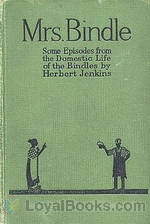 Mrs. Bindle
Mrs. Bindle
Herbert Jenkins' most popular fictional creation was Mr. Joseph Bindle, who first appeared in a humorous novel in 1916 and in a number of sequels. In the preface to the books, T. P. O'Connor said that "Bindle is the greatest Cockney that has come into being through the medium of literature since Dickens wrote Pickwick Papers". The stories are based on the comedic drama of life at work, at home and all the adventures that take place along the way. It becomes clear as the stories progress that Bindle would not be who he is without Mrs. Bindle, and this book seeks to tell the stories of the Bindles from the distaff point of view. | |
By: J. L. Duff | |
|---|---|
 The Rubaiyat of Ohow Dryyam With Apologies to Omar
The Rubaiyat of Ohow Dryyam With Apologies to Omar
| |
By: A. D. (Alfred Denis) Godley (1856-1925) | |
|---|---|
 The Casual Ward academic and other oddments
The Casual Ward academic and other oddments
| |
By: John Cecil Clay (1875-1930) | |
|---|---|
 Happy Days
Happy Days
| |
By: R. D. (Robert Dalziel) Cumming (1871-1958) | |
|---|---|
 Skookum Chuck Fables Bits of History, Through the Microscope
Skookum Chuck Fables Bits of History, Through the Microscope
| |
By: Lisle de Vaux Matthewman (1867-) | |
|---|---|
 Crankisms
Crankisms
| |
By: Kenneth McGaffrey (??-1938) | |
|---|---|
 The Sorrows of a Show Girl
The Sorrows of a Show Girl
Originally printed in The Morning Telegraph in New York, this is the story of Miss Sabrina, the show girl, and her ups and downs with the unpredictable theatrical industry and the Great White Way, the lights and glamour of Broadway. "In order to set myself right with both the public and the vast army of Sabrinas that add youth and beauty to our stage, and brilliancy and gaiety to our well known cafes, I wish to say that she is all that she should be...”- Kenneth McGaffrey | |
By: F. C. (Francis Cowley) Burnand (1836-1917) | |
|---|---|
 Happy-Thought Hall
Happy-Thought Hall
| |
By: Mary Wallace Bundy Little (1857-) | |
|---|---|
 The Rubaiyat of a Huffy Husband
The Rubaiyat of a Huffy Husband
| |
By: Unknown | |
|---|---|
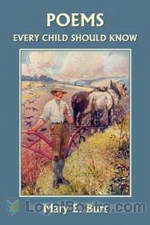 Poems Every Child Should Know
Poems Every Child Should Know
A treasure trove of more than two hundred poems, this gem of an anthology compiled by Mary E Burt is indeed a most valuable set of poems to read or listen to. Published in 1904, Poems Every Child Should Know contains some well-loved verses like Thomas Gray's Elegy Written in a Country Churchyard, Lewis Carroll's delightful parody Father William, Felicia Hemans' deeply-moving Casablanca and other favorites. It also has lesser-known but equally beautiful pieces like Henry Wadsworth Longfellow's The Arrow and The Song, Robert Browning's The Incident of the French Camp, Eugene Field's nonsense lyrics Wynken, Blynken and Nod and a host of other wonderful verses... | |
By: Marshall Pinckney Wilder (1859-1915) | |
|---|---|
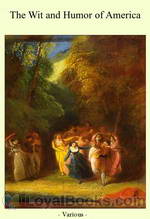 The Wit and Humor of America
The Wit and Humor of America
Light hearted, entertaining and amusing as it takes on contemporary American life would best describe The Wit and Humor of America by Marshall Pinckney Wilder whish is a compilation of humorous passages from various works of American literature. Ranging from Harriet Beecher Stowe's Dinah's Kitchen to Dislikes by Oliver Wendell Holmes, Little Orphint Annie by James Whitcomb Riley, The Auto Rubaiyat by Reginald Wright Kauffman, Garden Ethics by Charles Dudley Warner and Morris and the Honorable Tim by Myra Kelley and many more delightful pieces, the book is indeed a treasure trove of humor... | |
By: Various | |
|---|---|
 Brazilian Tales
Brazilian Tales
“Brazilian Tales” is a collection of six short stories selected by Isaac Goldberg as best representative of the Brazilian Literature of his period – the end of the 19th century. His comprehensive preface aims at familiarizing the reader with a literature that was – and still is – virtually unknown outside the boundaries of its own land, and the pieces chosen by Goldberg to be translated belong to writers that reached popularity and appreciation while still alive. This “pioneer volume”, as the translator himself puts it, still keeps its charm and interest as a way of offering to the English speaking public some “sample cases” of Brazilian Literature. | |
By: Anonymous | |
|---|---|
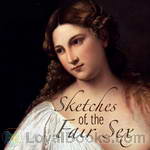 Sketches Of The Fair Sex
Sketches Of The Fair Sex
Sketches of the fair sex, in all parts of the world. To which are added rules for determining the precise figure, the degree of beauty, the habits, and the age of women, notwithstanding the aids and disguise of dress. It is our design to present a pleasing and interesting miscellany, which will serve to beguile the leisure hour, and will at the same time couple instruction with amusement. We have used but little method in the arrangement: Choosing rather to furnish the reader with a rich profusion... | |
 English as She is Wrote
English as She is Wrote
"...Showing Curious ways in which the English Language may be made to convey Ideas or obscure them." A collection of unintentionally humorous uses of the English language. Sections of the work: How she is wrote by the Inaccurate, By Advertisers and on Sign-boards, For Epitaphs, By Correspondents, By the Effusive, How she can be oddly wrote, and By the Untutored. | |
By: Unknown | |
|---|---|
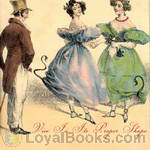 Vice in its Proper Shape
Vice in its Proper Shape
Cautionary tales of the transmigration of the souls of naughty boys and girls, as elucidated by the mysterious Bramin, Mr Wiseman: “Having been gifted with the faculty of distinguishing those animals which are now animated by the souls of such human beings as formerly degraded themselves to a level with the unthinking brutes, I have taken the pains to provide a collection of beasts, birds, &c. most of which are inhabited by the souls of some naughty masters or misses, who died in the neighbourhood.” (David Barnes, quoting the Introduction) | |
 Humour of the North
Humour of the North
Some day an enterprising editor may find time to glean from the whole field of Canadian literature a representative collection of wit and humour. . . . The present little collection obviously makes no such ambitious claim. It embraces, however, what are believed to be representative examples of the work of some of our better-known writers, many of which will no doubt be quite familiar to Canadian readers, but perhaps none the less welcome on that account. | |
By: Richmal Crompton (1890-1969) | |
|---|---|
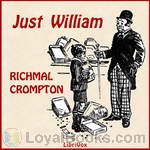 Just William
Just William
William is a mischievous eleven year old who is puzzled by the adult world, which is no less puzzled by him. The humor is gentle and pleasing. The series of books is better known in the United Kingdom than in the U.S. ( | |
By: Chester K. Steele (1862-1930) | |
|---|---|
 The Diamond Cross Mystery
The Diamond Cross Mystery
Colonel Ashley is confronted with a difficult case: The proprietor of a jewelry shop is found murdered, and a valuable diamond cross is stolen. Whodunnit, and how can the Colonel's expertise in fishing help to solve the case? | |
By: Anonymous | |
|---|---|
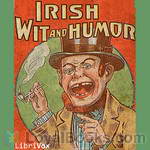 Irish Wit and Humor
Irish Wit and Humor
Excerpted anecdotes from the biographies of Swift, Curran, O'Leary and O'Connell, relating humorous snippets of politics in 18th and 19th century Ireland. For some these may be poignant in addition to being humorous and for others they may be humorous in addition to being poignant. ( | |
By: Barry Pain (1864-1928) | |
|---|---|
 Eliza
Eliza
A gentle, yet deliciously humourous series of anecdotes following the life of the main character and his wife, Eliza. | |
By: A. A. Milne (1882-1956) | |
|---|---|
 The Sunny Side
The Sunny Side
The Sunny Side is a collection of short stories and essays by A. A. Milne. Though Milne is best known for his classic children's books, especially Winnie The Pooh, he also wrote extensively for adults, most notably in Punch, to which he was a contributor and later Assistant Editor. The Sunny Side collects his columns for Punch, which include poems, essays and short stories, from 1912 to 1920. Wry, often satirical and always amusingly written, these pieces poke fun at topics from writing plays to lying about birdwatching. They vary greatly in length so there is something for everyone. | |
By: Ellis Parker Butler (1869-1937) | |
|---|---|
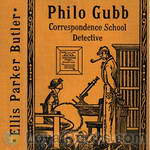 Philo Gubb, Correspondence-School Detective
Philo Gubb, Correspondence-School Detective
Philo Gubb, not being content with his job as wallpaper-hanger, has higher aspirations: to become a detective, just like Sherlock Holmes. To that end, he enrolls in a correspondence course, where he gets lessons through the mail as well as the necessary disguises for a detective. Philo Gubb, not being really clever or intuitive, or even looking good in those disguises, gets involved in one case after the other - and sooner or later happens to stumble on and solve the crime... Each of these stories... | |
By: Saki (1870-1916) | |
|---|---|
 The Toys of Peace
The Toys of Peace
This is the fifth collection of short stories by Saki (H.H. Munro), and was published posthumously in 1923. Even so, many of the stories are quite up to the standard of those collected earlier. | |
By: Richard Harding Davis (1864-1916) | |
|---|---|
 The Make-Believe Man
The Make-Believe Man
Adventure was what our protagonist was looking for, when he boarded the steamer "Patience" for his holiday, and when one has a man with such a vivid imagination like Joseph Forbes Kinney as a travel companion, who seems to find adventures at every turn of the road (and if not, he manufactures them), the two travellers are sure to stumble into trouble... | |
By: Various | |
|---|---|
 The Jargon File, Version 4.2.2, 20 Aug 2000
The Jargon File, Version 4.2.2, 20 Aug 2000
| |
By: Thomas Hardy (1840-1928) | |
|---|---|
 The Hand of Ethelberta
The Hand of Ethelberta
Ethelberta was raised in humble circumstances but became a governess and consequently, at the age of 18, married well. However, her husband died two weeks after the wedding. Her father-in-law, Lord Petherwin, died shortly afterwards. Ethelberta (now 21) lives with her mother-in-law, Lady Petherwin. In the three years that have elapsed since her marriage, Ethelberta has been treated to foreign travel and further privileges by Lady Petherwin but restricted from seeing her own family. The story follows Ethelberta's career as a famous poetess and storyteller... | |
By: A. A. Milne (1882-1956) | |
|---|---|
 Once a Week
Once a Week
A collection of short stories by famed Winnie the Pooh author, A.A. Milne. This charmingly humorous work from Milne's earlier writing period was first published in Punch magazine. | |
By: Dorothy Canfield Fisher (1879-1958) | |
|---|---|
 The Bent Twig
The Bent Twig
Semi-autobiographical series of incidents in the life of an intellectual American family in the late 19th - early 20th Century as seen by favored daughter, Sylvia Marshall. Her father is an economics professor in a Midwestern state university and she is following in his inquisitive footsteps. Canfield writes this in a matter-of-fact manner with Tarkingtonesque good humor. | |
By: Cal Stewart (1856-1919) | |
|---|---|
 Uncle Josh's Punkin Centre Stories
Uncle Josh's Punkin Centre Stories
A collection of comedic short stories from the perspective of an old country man. | |
By: A. A. Milne (1882-1956) | |
|---|---|
 Not That It Matters
Not That It Matters
More of the witty, wry, and deliciously wicked essays and articles written by Milne. Most people know him as the creator of Winnie The Pooh, but he worked for many years as editor of Punch Magazine and these are some of his best. Not That It Matters is a collection of over 40 of these short stories and articles. Not That It Matters collects his columns for Punch, which include poems, essays and short stories, from 1912 to 1920. Most of his writing pokes fun, both gentle and not so gentle at a variety of topics... | |
By: George Horace Lorimer (1869-1937) | |
|---|---|
 Letters from a Self-Made Merchant to His Son
Letters from a Self-Made Merchant to His Son
Being the Letters written by John Graham, Head of the House of Graham & Company, Pork-Packers in Chicago, familiarly known on 'Change as "Old Gorgon Graham," to his Son, Pierrepont, facetiously known to his intimates as "Piggy." George Horace Lorimer was an American journalist and author. He is best known as the editor of The Saturday Evening Post. | |
By: Christopher Morley (1890-1957) | |
|---|---|
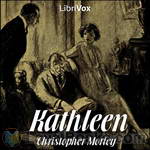 Kathleen
Kathleen
A group called the Scorpions, eight Oxford undergraduates, find a letter Kathleen wrote a letter to Joe at Oxford. They build up an image of Kathleen and Joe from the letter and set out to find and meet Kathleen. The competition between them leads to many entertainingly funny scenarios. | |
By: Stephen Leacock (1869-1944) | |
|---|---|
 My Discovery of England
My Discovery of England
"In the course of time a very considerable public feeling was aroused in the United States and Canada over this state of affairs. The lack of reciprocity in it seemed unfair. It was felt (or at least I felt) that the time had come when some one ought to go over and take some impressions off England. The choice of such a person (my choice) fell upon myself. By an arrangement with the Geographical Society of America, acting in conjunction with the Royal Geographical Society of England (to both of whom I communicated my proposal), I went at my own expense."And from thence follow the impressions of Canadian political economist and humourist, Stephen Leacock, after a lecturing visit to England. | |
By: Saki (1870-1916) | |
|---|---|
 Unbearable Bassington
Unbearable Bassington
The Unbearable Bassington was the first novel written by Saki (H. H. Munro). It also contains much of the elegant wit found in his short stories. Comus (The Unbearable) Bassington, is a charming young man about town. His perversity however thwarts all his mother’s efforts to advance his prospects and lands him in hot water. Like many a “black sheep” he ends up being sent off to one of the colonies to fend for himself. This book showcases Saki’s wonderful writing and that ability to be so very funny and terribly sad at the same time. | |
By: Various | |
|---|---|
 The Book of Anecdotes and Budget of Fun; containing a collection of over one thousand of the most laughable sayings and jokes of celebrated wits and humorists.
The Book of Anecdotes and Budget of Fun; containing a collection of over one thousand of the most laughable sayings and jokes of celebrated wits and humorists.
| |
By: Unknown (1818-1854) | |
|---|---|
 The Humors of Falconbridge A Collection of Humorous and Every Day Scenes
The Humors of Falconbridge A Collection of Humorous and Every Day Scenes
| |
By: Various | |
|---|---|
 The Jargon File, Version 4.0.0, 24 Jul 1996
The Jargon File, Version 4.0.0, 24 Jul 1996
| |
By: Anonymous | |
|---|---|
 Jokes For All Occasions
Jokes For All Occasions
JOKES FOR ALL OCCASIONSPREFACEThe ways of telling a story are as many as the tellers themselves. It is impossible to lay down precise rules by which any one may perfect himself in the art, but it is possible to offer suggestions by which to guide practise in narration toward a gratifying success. Broadly distinguished, there are two methods of telling a story. One uses the extreme of brevity, and makes its chief reliance on the point. The other devotes itself in great part to preliminary elaboration in the narrative, making this as amusing as possible, so that the point itself serves to cap a climax... | |
By: John Kendrick Bangs (1862-1922) | |
|---|---|
 Idiot at home
Idiot at home
The Idiot returns along with Ms Idiot and their two children, Mollie and Tommy, move into their first house in suburbia. What follows are encounters with his companions from his boarding house days, Coffee and Repartee, along with new characters that inhabit suburbia with the unassailable logic of the Idiot and Mrs Idiot regarding various aspects of life in the suburbs, starting with why the knowledge of an egg beater is more important than that of Wagner. Which story is your favourite? | |
By: Eliza Armstrong | |
|---|---|
 Teacup Club (Dramatic Reading)
Teacup Club (Dramatic Reading)
The Teacup Club is formed when Dorothy decides to found an intellectual club of her own - to teach her fiance a lesson! The club’s discussion topics includes Theosophy, Politics and Women in Legislature. The club’s unofficial topics include Emily’s new dress, man-flu and the great mystery of the missing chafing-dish. A witty drama and a comedy of manners, secrets and politics . - Summary by Elizabby Cast List: Cast Narrator: Beth Thomas Evelyn: Jennifer Fournier Emily: Leanne Yau Dorothy: KHand Frances: Beth Thomas Elise: Lydia Marion: Vicki Hibbins Catharine: Michele Eaton Edited by: Michele Eaton and linny Proof listeners: Michele Eaton, Beth Thomas | |
By: George Gibbs (1870-1942) | |
|---|---|
 Madcap
Madcap
Quote: "To the quiet Titine her mistress created an impression of bringing not only herself into the room, but also the violent horse and the whole of the out-of-doors besides." --Chapter 1 of Madcap. --In the same chapter, Hermia Challoner, this force of nature pitted against the nature of her social milieu, laughingly tells her maid, "Better die living--than be living dead." --And thus starts the beginning of an early 20th century quest for something beyond the bored and politely veiled cynicism of class and wealth; beyond oneself. --Add to that a little mischief, a bit of Puckish misdirection. And a bit of romance. | |
By: Eleanor Hallowell Abbott (1872-1958) | |
|---|---|
 Rainy Week (Dramatic Reading)
Rainy Week (Dramatic Reading)
Join this couple in their annual house party where the “guests” becoming unknowing “actors” in their beach house play “Rainy Week” . “To be indeed absolutely explicit experience has proved, with an almost chemical accuracy, that, quite regardless of "age, sex, or previous condition of servitude," this particular combination of Romantic Passion, Psychic Austerity, Tragedy, Ambition, Poignancy, Innocence, And Irritation, cannot be housed together for even one Rainy Week without producing drama!” Cast Narrator/Mrs... | |
By: Fyodor Dostoyevsky (1821-1881) | |
|---|---|
 Crocodile
Crocodile
Ivan Matveich, the most ordinary person you might hope to meet, is swallowed alive by a crocodile at a sideshow. Finding life inside the belly of the beast quite comfortable, he makes a home for himself there. His disquisitions on the state of the world from inside the crocodile make him quite a name for himself; while all the while the discussion rages outside as to whether the beast is going to be cut open to release him or not, its value as a sideshow attraction having massively increased owing to the presence of the human voice buried inside it. One of Jorge Luis Borges' seven most favourite stories. - Summary by Tony Addison | |
By: Irving Bacheller (1859-1950) | |
|---|---|
 Prodigal Village; A Christmas Tale
Prodigal Village; A Christmas Tale
Small town life in early twentieth century New York state. This is a piquant parable of human nature. Bacheller's lightly humorous voice is evident throughout. Not all listeners will agree with the author's view of labor and management. - Summary by david wales | |
By: Nathan Dane Urner (1839-1893) | |
|---|---|
 Never: A Handbook For The Uninitiated And Inexperienced Aspirants To Refined Society's Giddy Heights And Glittering Attainments
Never: A Handbook For The Uninitiated And Inexperienced Aspirants To Refined Society's Giddy Heights And Glittering Attainments
An 1883 tongue-in-cheek spoof of manners and mannerisms of “society”. ‘the “Open Sesame” to that jealously-guarded realm,—good society,—in which you aspire to circulate freely and shine with becoming luster…. And I, the author of this code of warnings, as truly say unto you, that a contemptuous disregard of the same will be likely to lead you into mortification and embarrassment, if not into being incontinently kicked out of doors…. It will be, in truth, a bosom companion in the happiest sense of the term, a mutely eloquent monitor of deportment, a still, small voice as to what is in good form and what is not.’ - Summary by Book Preface and david wales | |
By: George Gibbs (1870-1942) | |
|---|---|
 Maker of Opportunities
Maker of Opportunities
When you're tired only because you're bored; and you're bored only because it seems like there's really nothing worth doing; and you're so, so wealthy that one would think opportunity should be knocking at your door every day... you sometimes just have to tell your closer friends how fatiguing the life of he who has everything really is.... And then; you find your calling! | |
By: P. G. Wodehouse (1881-1975) | |
|---|---|
 Inimitable Jeeves
Inimitable Jeeves
When either Bertie Wooster or his friends found themselves in the soup or in dangerous proximity to the tureen, the instinct of one and all was to turn to Jeeves - Bertie's Man. He understood human nature, especially that of gilded youth. It did not matter if the hope of an ancient house had fallen in love with a waitress, or if Bertie's cousins Claude and Eustace had been playing dido; Jeeves never failed. His was a sound brain. The only thing in which Jeeves failed, that is in his master's eyes, was that he could not always go the whole way with him in the matter of spats, socks and ties, particularly in the Spring - Jeeves was a purist... | |
By: Arthur Wing Pinero (1855-1934) | |
|---|---|
 Dandy Dick
Dandy Dick
“Dandy Dick” was the third of the farces which Mr. Pinero wrote for the old Court Theatre—a series of plays which, besides giving playgoers a fresh source of laughter, and the English stage a new order of comic play, brought plentiful prosperity to the joint management of Mr. Arthur Cecil and the late Mr. John Clayton. - Summary by Cast list: The Very Reverend Augustin Jedd, DD, Dean of St Marvells: ToddHW Sir Tristram Mardon, Bart: Son of the Exiles Major Tarver, -th Hussars, quartered at Durnstone near St Marvells: Craig Franklin Mr... | |
By: Anonymous | |
|---|---|
 Life of Lazarillo de Tormes (Markham translation)
Life of Lazarillo de Tormes (Markham translation)
A whimsical collection of stories about a wandering street urchin, Lazarillo de Tormes is a classic of the Spanish Golden Age, even paid homage in Cervantes’ Don Quixote. Rendered homeless by the arrest of his father and poverty of his mother, the boy Lazarillo has no choice but to go out and find masters to serve. Unfortunately, each of his masters is worse than the one before, and in each case Lazarillo is cast upon his own wits in order to survive. Clever, hungry, and desperate, he always has a sharp eye for lessons on how to outwit the greedy and unscrupulous people who surround him... | |
By: John Cecil Clay (1875-1930) | |
|---|---|
 Cupid's Cyclopedia
Cupid's Cyclopedia
This 1910 short work is by the English-born American humorist, satirist, and illustrator Oliver Herford, aided by another caricaturist and illustrator, John Cecil Clay. Herford’s books were usually short and quite popular in their time. He is a master of the witty remark and joke, i.e., “Many are called but few get up” and “Only the young die good”. Cupid’s Cyclopedia is a jesting alphabetical list of words and their definitions dealing with the course of true love; the book closes with an essay on the same subject entitled “Amoria,” a tongue-in-cheek imaginative travelogue on “the most ancient and honorable country upon the earth’s surface... | |
By: Earl Derr Biggers (1884-1933) | |
|---|---|
 Love Insurance (version 2)
Love Insurance (version 2)
On duty with Lloyds of London in NYC, young Richard Minot is sent to the St Augustine-ish town of San Marco to ensure that a wealthy young lady, Cynthia Meyrick marry his firm's client, Lord Harrowby. Then, in a meet-cute on a slow-moving train, Minot meets the very enticing Miss Meyrick and... reconsiders his duty. - Summary by Matt Pierard | |
By: T. W. H. Crosland | |
|---|---|
 Egregious English
Egregious English
This 1903 book is a tongue-in-cheek send-up of English people and subjects. Within the humor , the listener may be surprised by some diamond-hard observations. The listener is also alerted to some attitudes of a different time that would not be acceptable in today's polite discourse. Here writing as “Angus McNeil”, a Scotsman, Crosland was a British author, poet, and journalist . | |
By: Eden Phillpotts (1862-1960) | |
|---|---|
 Human Boy Again
Human Boy Again
Published in 1908, this is a further collection of twelve humorous short stories about English school boys. The author wrote two other books in this series: The Human Boy and The Human Boy And The War . Eden Phillpotts was popular with the reading public and wrote prolifically novels, short stories, poetry, plays, and nonfiction. - Summary by David Wales | |
By: Frank Gelett Burgess (1886-1951) | |
|---|---|
 Romance Of The Commonplace
Romance Of The Commonplace
Thirty four whimsical, tongue-in-cheek, and entertaining essays about not much in particular, published in 1902, by one of the most popular writers of the late nineteenth and early twentieth centuries. The American Gelett Burgess was an artist, art critic, poet, author, and humorist. Nonsense verse was a specialty. - Summary by David Wales | |
By: John Peter Toohey (1879-1946) | |
|---|---|
 Fresh Every Hour
Fresh Every Hour
This book is best described by its subtitle: “DETAILING the Adventures, Comic and Pathetic of one Jimmy Martin, Purveyor of Publicity, a Young Gentleman Possessing Sublime Nerve, Whimsical Imagination, Colossal Impudence, and, Withal the Heart of a Child.” Jimmy, press agent extraordinaire, conjures up outlandish and truth-stretching publicity stunts for an amusement park, theaters and performers, often with unexpected and amusing results. Despite his foibles, Jimmy presses on in pursuit of career success and of pretty Lolita Murphy of Cedar Rapids, Iowa... | |